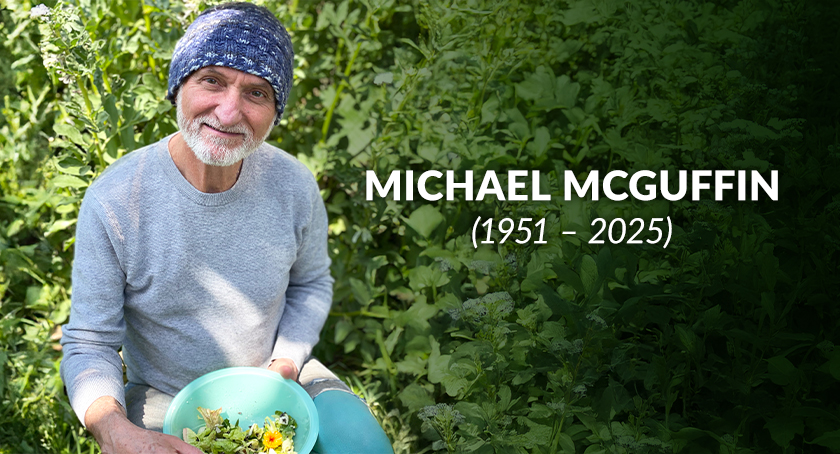Exclusives
Navigating the Skin and Gut Microbiomes With Lifeway Kefir
Dietitian Caroline Margolis discusses the importance of a balanced skin-gut axis and the probiotic powerhouse that keeps them in harmony.

By: Lianna Albrizio
There’s weight in the phrase, “You are what you eat.”
Consumers who eat uninhibited are straddling a slippery slope of increased body mass index, bodily inflammation, Type 2 diabetes, hypertension and heart disease, and unsightly skin conditions.
In fact, per the National Library of Medicine, there’s a link between adolescent obesity and severe acne. A cross-sectional study conducted among adolescents between the ages of 12 and 18 revealed those who were overweight or obese suffered from the inflammatory type of acne (cystic, papules, and pustules) compared with teenagers who were of normal weight or underweight.
Caroline Margolis, a registered dietitian at Lifeway, which prides itself on its probiotic daily products since 1986, agreed. “An unhealthy diet and unbalanced gut may lead to inflammation and skin issues,” she said. “Diets that include high-glycemic-index, highly processed and fried foods, and foods rich in unhealthy fats have been linked to increased acne breakouts and other skin issues.”
An unhealthy diet can compromise the gut microbiome, which shields important intestinal barriers in the gut including the mucus membrane and epithelial tissue, which protect the gut’s underlying immune cells.
“When the gut microbiome is in a state of imbalance or distress, an appropriate immune response may be affected, causing inflammation throughout the body, including an increase in inflammatory cytokine levels,” explained Margolis. “This has a direct impact on our skin and has been shown to be synonymous with GI disorders such as Crohn’s, Irritable Bowel Syndrome, Celiac Disease, and skin disorders such as rosacea and psoriasis, and treatments for acne.”
Margolis said it’s imperative to treat the gut microbiome with kindness by feeding it fiber and fermented foods containing probiotics. Probiotics are live microorganisms similar to the ones that live in the gut, and offer health benefits when ingested in adequate amounts. Probiotics feed off prebiotics—non-digestible carbohydrates that are a source of fiber naturally found in a variety of plant foods. Probiotics help regulate digestion, support immunity, and can make people feel well, Margolis said.
While people struggling with depression may turn to high-processed comfort foods, it’s a detriment to their health as such foods high in fat cause inflammation in the body and catapult a number of health concerns.
In lieu of unhealthy foods that provide instant gratification, Margolis recommended investing in healthier, “feel-good” foods that contain probiotics such as Lifeway Kefir. More than a mood-booster, they produce a positive ripple effect on helping balance the gut microbiome.
Fiber and fermented foods containing probiotics, such as kefir, may balance the level of good bacteria in the microbiome, lower inflammation levels, and have a positive effect on the skin, according to Margolis. This effect included a decrease in skin inflammation, strengthening the epidermal barrier and maintaining a healthy balance of skin cells and turnover.
The Kefir Diet
Lifeway Kefir is what Margolis dubbed a “probiotic powerhouse” of nutrient-rich fermented dairy beverages. They comprise 12 live and active cultures and between 25 to 30 billion beneficial colony-forming units that may help add diversity and health to the gut, she said.Moreover, kefir has a long fermentation process that involves the production of peptides, bioactive compounds, and postbiotics which carry myriad benefits. For one, smoother, youthful skin due to its ability to balance the microbiome to encourage skin cell turnover to maintain homeostasis, which yields a strong skin barrier with the ability to limit evaporation, preserve moisture, and protect against invading pathogens.
Kefir can also assist with appropriate immune response by decreasing the level of pro-inflammatory cytokines and increasing the anti-inflammatory cytokines released to reduce inflammation and the severity of atopic dermatitis, among other irritative skin conditions.
Lifeway, which bases its products off of psychiatrist James Greenblatt’s philosophy of the gut serving as a second brain, offers several probiotic products that support gut and skin health to keep microbiomes balanced and in harmony, such as the Inner Glow Collagen Inducer.
Active ingredients include whole milk kefir, beets, an orange and a banana. The smoothie, Margolis explained, is a source of prebiotics to fuel the probiotics in the beverage itself and in the gut.
“Beets and fruits are important sources of antioxidants which are beneficial for skin health, along with vitamin C, which is important for collagen production,” she noted. “The fatty acids found in kefir are the building blocks of skin cells, helping strengthen the skin’s layers and form a protective barrier, as well as keep it hydrated. If one were to apply kefir topically, as in a homemade face mask, the fatty acids in kefir help hydrate and moisturize the skin and improve elasticity.”
It’s no surprise that a correlation exists between gut and skin health, given their sensitive, fragile structures. To keep them balanced using the kefir diet, Margolis advised maintaining a healthy diet rich in fruits, vegetables, whole grains, lean proteins, legumes, and healthy fats, in addition to fermented foods such as kefir or farmer cheese at least once daily.





















